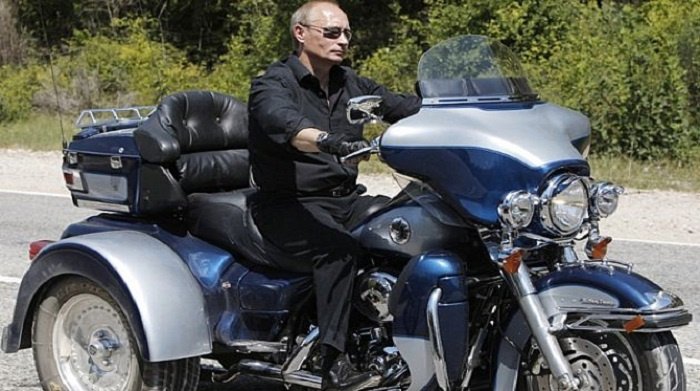Syria: Russia’s Winning Card or Leverage for Pressure?

During the second term of Putin’s presidency, Russia has changed its view of the Middle East. Pragmatism in Moscow’s foreign policy has caused this country to design its political, economic and security relations with the countries of this region. Thus, some experts name four factors as the reasons behind Russia’s active policies towards the Middle East: confronting the US’ unilateralism, achieving an international role as a world power, expanding economic relations with the countries of the region and expansion of the Middle East market, and influencing Russian Muslims.
Could the above-mentioned factors regarding the more active policies of Russia be considered as the main reasons behind them or are there any other elements, including the issue of Syria, which have helped in the establishment of Moscow’s Middle East policy?
Naturally, those factors have been important in Russia’s new policies. But the fact is that Russia, particularly after Putin’s presidency since 2000, has pursued new policies with regard to the West, NATO and the US. Russian officials have reached the conclusion that sooner or later NATO and the US will come after it. On this basis, Russia believes that the phenomenon of the Arab Spring in the Middle East is built by the US and the West and is similar to the colored revolutions in the former Soviet Union. They believed that the US and NATO could not accept Russia (a permanent member of the UN Security Council and the world’s second power) as a partner in resolving international issues and they would soon intervene in this country’s internal affairs. Therefore, prolongation of the Syrian issue would create an opportunity for Moscow to take pre-emptive measures. Russians believed that if they had not entered Syria, this country would have fallen similar to what happened in Libya and other places and then the US and NATO would have acted against the national security of Russia from Syria and the Mediterranean Sea. Hence, it must be considered that in forming the domestic and foreign policies of Russia, the West, meaning the US and NATO, are the secret key to many of the domestic and foreign actions of this country.
Could Russia’s Middle East policy be caused by the objective of the world powers particularly NATO in getting close to Russia’s political and security borders?
Except the Cold War era, the former Soviet Union did not consider the Middle East within its strategic and security circle which covered Eastern Europe. Today, Russia assumes that confronting the West (whether soft or hard) is unavoidable. Therefore, following NATO’s entrance into Russia’s backyard in Ukraine and measures taken against Russia’s interests and security, Moscow considered these acts as provocative and was forced to take pre-emptive measures in Syria after it properly managed the situation in Ukraine. They found a suitable opportunity in the crisis in Syria against the expansion of NATO in the eastern and southern parts of Russia. Russians reached the conclusion that if military action was not pursued, the possibility for Saudi-Turkey coalition to enter the scene in Syria would be high. Thus, there was not much time left for Russia. Russia’s interventions in Syria are related to the general foreign policy of this country and the Middle East issue is defined within the general foreign policy.
To what extent could Russia use regional differences to its own benefit in order to deal with the West?
The most important issue of Russia’s domestic policy-making is the West and NATO. It is natural that Russia is interested in having more winning cards in its game with the West. One of these cards was Iran’s nuclear dossier and the other the issues related to Afghanistan. Now that Russia has military presence in Syria, it has a winning card in its hand. But this depends on the willingness of the West and the US to deal with Russia and consider some shares for it. Russia has taken Turkey hostage for Ukraine. If Ukraine as Russia’s backyard was taken hostage by the West and transformed into an insecure area, Turkey, as a NATO member, is now taken hostage as well. Russia has the leverage to pressure NATO. There are two viewpoints in the US with regard to dealing with Russia. Some believe that there is no need to give concessions to Russia and it could easily be contained. But others believe that perhaps by giving concessions to Moscow, they could act against other anti-western players like Iran and its allies. Russia has now created many possibilities for itself.
Could it be said that Russia’s foreign policy is driven from its pragmatic logic based on which Russia is moving towards the expansion of interaction and cooperation with the West in the Middle East and flexibility in certain issues including the crisis in Syria?
Since 2000, when Putin came to power, pragmatism has always been the foundation of Russia’s foreign policy. Naturally, Russia is ready to continue its pragmatic policies. Contrary to Ukraine, Syria is not Russia’s first circle of security, hence, a good issue to be bargained with the West. The question is, are the US and the West really ready to make deals with Russia in Syria? From the beginning of Russia’s entrance in the Syrian scene, Obama has repeatedly stressed that Russia will be trapped in Syria’s quagmire. Arab states and opposing countries including Turkey and Saudi Arabia have all reminded Russia of the Afghanistan syndrome in the 1980s and repeated western-Islamic coalition in Syria this time. The other point is that Russia does not intend to lose its big military base in Lazeghiya. They believe that if a deal is to be made with the West and Syria’s neighboring countries, this military base in non-negotiable. With Russia’s military entrance in Syria, the situation has become more complicated because the demands of both parties have increased. Russia intends to keep its military base in Syria but is ready to negotiate on other issues.

